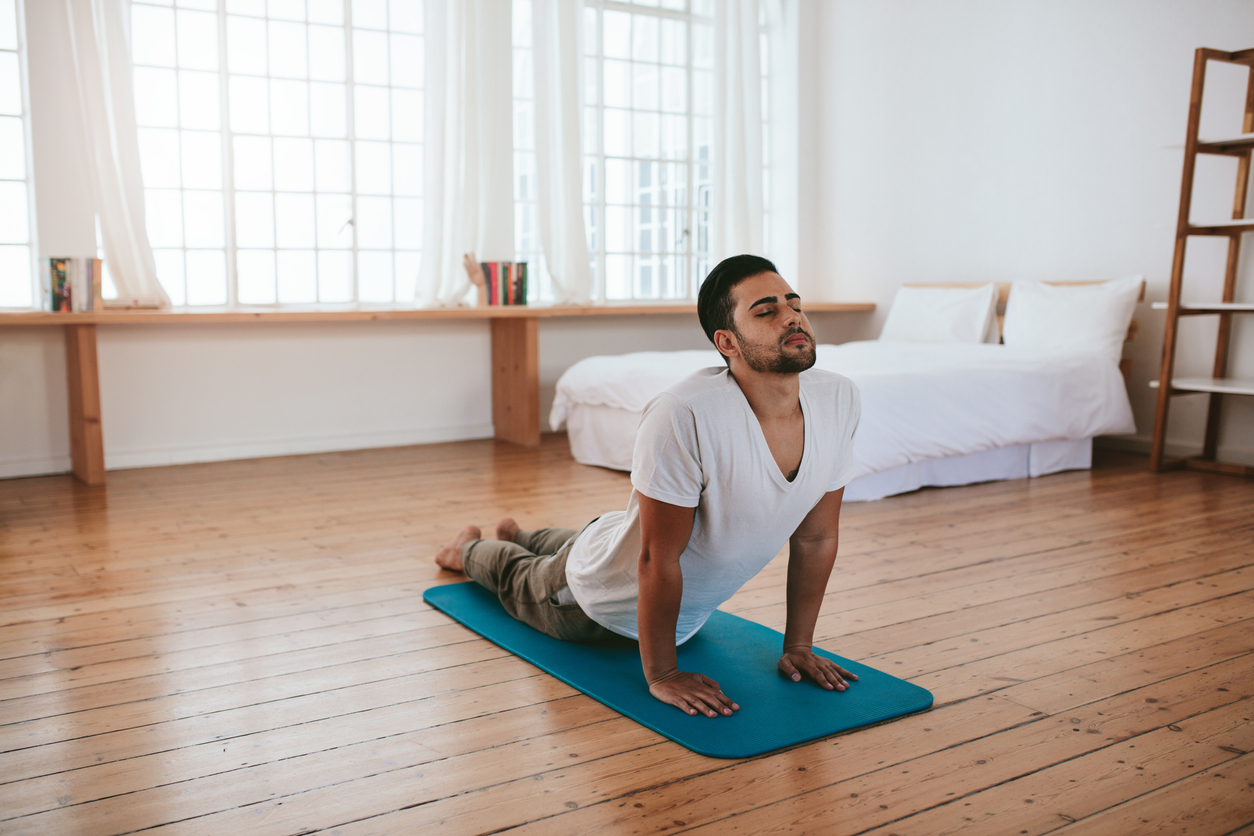
Case Study: Helping a client with autism improve her interview skills
October 6, 2020
Prior learning: Unlocking a little-known career superpower
October 6, 2020This flexible tool can help individuals connect to their interests and values
Gabrielle Beaupré and Geneviève Taylor

Maya’s situation exemplifies the psychological health issues that post-secondary students face today. Indeed, an increasing proportion of students report experiencing stress, anxiety and emotional distress (UEQ, 2019). This is compounded by questions regarding career goals, choice of academic programs and/or different career paths, which are frequent in this population. A recent pan-Canadian study shows that approximately 40% of postsecondary students have difficulties dealing with career-related issues (ACHA, 2019). They also experience anxiety caused by an increasingly unstable and uncertain labour market and by a multitude of opportunities, which can actually induce a feeling of “paralysis” and chronic insatisfaction (Schwartz, 2004). Unfortunately, career guidance professionals in university settings often lack the time or resources to provide adequate support for students (ASEUCC, 2013). Therefore, they need to rely on new approaches to reinforce students’ self-determination and help them to reflect on their future.
Mindfulness as a superpower
Mindfulness-based interventions represent relatively new approaches that could allow students to better manage their career-related issues. Mindfulness is generally defined as a non-judgmental, accepting awareness of our inner and outer experience as it arises in the present moment (Kabat-Zin, 2003). A mindful person tends to be more attentive to his or her sensations, thoughts and emotions as they arise, and does so in an accepting and self-compassionate way. The good news is that mindfulness is like a muscle – it can be developed as a skill through various types of exercices one can practice alone or in a group, with or without guidance. Typical mindfulness practices are:
- Focused attention exercises on different objects such as the breath, bodily sensations or the five senses;
- Focused attention exercises on body movements (e.g. mindful walking, mindful stretching, yoga);
- Meditations that develop compassion for the self and for others.
The impact of mindfulness on well-being
Several scientific studies have established positive links between mindfulness and well-being. First, mindfulness promotes the development of psychological flexibility, an important determinant of mental health, which allows a person to adapt to new situations such as unexpected life changes and difficult circumstances (Kashdan & Rottenberg, 2010). During the COVID-19 pandemic, several researchers have become interested in personal resilience factors. They propose mindfulness as an adaptation tool that may help people be better able to deal with uncertainty (Polizzi, Lynn et Perry, 2020). Mindfulness increases our focus on the present moment, which takes us away from ruminations about the past or anxious anticipation about the future. What’s more, mindfulness-based interventions have been shown to reduce stress and depressive symptoms among university students and career counselling clients (Piot, 2020; Grégoire et al., 2016). Finally, our research group has found that mindfulness could help students who were experiencing a career-related action crisis to better regulate their emotions (Marion-Jetten, Taylor et Schattke, 2020).
“Mindfulness promotes the development of psychological flexibility, an important determinant of mental health, which allows a person to adapt to new situations such as unexpected life changes and difficult circumstances.”
Mindfulness as a career-related superpower
Beyond the benefits of mindfulness for well-being and emotion regulation, how else can it act as a career-related superpower?
Better self-knowledge
First, mindfulness could help a person to better distinguish between his or her deeply held values and interests and those that originate only in societal or parental expectations (Schattke, Taylor, & Marion-Jetten, 2020; Strick et Papies, 2017). There are many ways to increase one’s self-knowledge – mindfulness stands out as a flexible tool to do so. It promotes the ability to pay attention to all aspects of one’s experience, while accepting everything that comes up instead of avoiding it (Carlson, 2013).
For example, by practising body awareness, Maya could realize that she often feels tension in her shoulders when she thinks about taking the accreditation exams to become a chartered accountant. She could also realize that she has a lot of negative thoughts during these times and observe them to see what they could tell her. At the same time, she could notice that she feels light and open when she give oral presentations. This information can become very useful when thinking about which work contexts would better fit her needs and her working style as a future accountant.
Read more from CareerWise
Integrating ‘career rewirement’ strategies into your practice
Sustaining engagement in the midst of a pandemic
Responding to career uncertainty with compassion and intentionality
Setting self-concordant career goals
Second, mindfulness could help a person to set career goals that are based on their deeply held values and true interests. Referred to as self-concordant, these goals are based on self-determined motivation and are essential for well-being (Deci, Ryan, Schultz et Niemiec, 2015). In fact, a series of longitudinal studies has shown that choosing an academic program that is related to one’s true interests and values can increase academic performance and decrease psychological distress and school dropout (Taylor et al., 2014).
By practising mindfulness, Maya could realize that she is often concerned with what others would say if she dropped out of her current program and did not become an accountant. She could then observe, without judgment, that her motivation for this career goal was perhaps not as self-determined as she thought. As previously mentioned, Maya could also become more aware of her own values and of what truly interests her. This could help her to zone in on her next career goal, and eventually help her to set and get engaged in a more self-concordant goal.
Developing creativity
Finally, mindfulness can increase different types of creativity, which would allow a person to think of or even create new opportunities for themselves and find innovative solutions when confronted with career-related obstacles. Research on this topic has shown that people can solve problems more easily when they have practiced mindfulness meditation right before (Colzato et al., 2014; Ding et al., 2015). Mindfulness could thus help Maya find “out of the box” opportunities to resolve her career-related issues.
Helping university students with mindfulness
How can career development professionals help students cultivate mindfulness? They can encourage them and guide them to observe their everyday experiences as they arise (i.e. recurring thoughts, bodily sensations, emotions), and accept them in a kind and non-judgmental way. University students could capitalize on the development of mindfulness as a skill – especially since it is an accessible practice that can be easily adjusted to fit into an already busy schedule. More than ever, career decision-making is a lifelong process, and not a stage that is fixed in time. Mindfulness could enrich this process, constantly evolving as the student enters and interacts with the labour market.
In our opinion, mindfulness represents an additional yet important career-related superpower; a tool that can help a person regulate negative emotions that often accompany career issues. Mindfulness also helps people to get to know themselves better by fostering access to their true interests and values, recurring thought patterns, emotions and bodily sensations. Therefore, a more mindful student could make more self-congruent choices and better adjust to career-related obstacles, even after graduation.
Gabrielle Beaupré, MA, is a doctoral student in education at UQAM and a practising career guidance counsellor. Her research interests focus on mindfulness, motivation for career goals and well-being amongst university students. Her doctoral project is financed by the Fonds de Recherche du Québec Société et Culture.
Geneviève Taylor, PhD, is a professor in career counselling in the Department of Education and Pedagogy at Université du Québec à Montréal, and a researcher in the Groupe de recherche et d’intervention sur la présence attentive (GRIPA). Her research focuses on the role of mindfulness self-compassion in career-related goal pursuit and motivational processes.
References
American College Health Association. (2019). American College Health Association-National College Health Assessment II: Canadian Reference Group. Hanover : American College Health Association.
Association des services étudiants des universités et collèges du Canada (ASEUCC). (2013). Post-Secondary Student Mental Health: Guide to a Systemic Approach.
Carlson, E. N. (2013). Overcoming the Barriers to Self-Knowledge : Mindfulness as a Path to Seeing Yourself as You Really Are. Perspectives on Psychological Science, 8(2), 173‑186.
Colzato, L.S., Szapora, A., Lippelt, D. et Hommel, B. (2014). Prior meditation practice modulates performance and strategy use in convergent- and divergent-thinking problem. Mindfulness. http://dx.doi.org/10.1007/s12671-014-0352-9 (online publication ahead of print).
Deci, E. L., Ryan, R. M., Schultz, P. P. et Niemiec, C. P. (2015). Being aware and functioning fully. Handbook of mindfulness: Theory, research, and practice, 112-129.
Ding, X., Tang, Y., Deng, Y., Tang, R., et Posner, M.I. (2015). Mood and personality predict improvement in creativity due to meditation training. Learning and Individual Differences, 37, 217–221.
Grégoire, S., Lachance, L. et Richer, L. (2016). La présence attentive, mindfulness. État des connaissances empiriques et pratiques. Montréal : Presses de l’Université du Québec.
Kabat-Zinn, J. (2003). Mindfulness-based interventions in context : Past, present, and future. Clinical psychology: Science and practice, 10(2), 144–156.
Kashdan, T. B. et Rottenberg, J. (2010). Psychological flexibility as a fundamental aspect of health. Clinical Psychology Review, 30(7), 865-878.
Lebuda, I., Zabelina, D. L., & Karwowski, M. (2016). Mind full of ideas: A meta-analysis of the mindfulness–creativity link. Personality and Individual Differences, 93, 22-26.
Piot, F. (2020). Projet Oreka : essai randomisé contrôlé destiné à évaluer l’impact d’ateliers issus de l’approche d’acceptation et d’engagement sur la souplesse psychologique, le bien-être psychologique et l’espoir chez des individus confrontés à une impasse professionnelle [The Oreka Project : Randomised controlled trial to evaluate the impact of workshops based on Acceptance-Commitment Therapy on psychological flexibility, psychological well-being, and hope among people experiencing a professional impasse]. [Unpublished doctoral dissertation]. Université du Québec à Montréal.
Polizzi, C., Lynn, S. J., & Perry, A. (2020). Stress and Coping in the Time of COVID-19: Pathways to Resilience and Recovery. Clinical Neuropsychiatry, 17(2).
Schwartz, B. (2004). The paradox of choice : Why more is less (Vol. xi). HarperCollins Publishers.
Strick, M. et Papies, E. K. (2017). A Brief Mindfulness Exercise Promotes the Correspondence Between the Implicit Affiliation Motive and Goal Setting. Personality and Social Psychology Bulletin, 43(5), 623‑637.
Taylor, G., Jungert, T., Mageau, G. A., Schattke, K., Dedic, H., Rosenfield, S. et Koestner, R. (2014). A self-determination theory approach to predicting school achievement over time : The unique role of intrinsic motivation. Contemporary Educational Psychology, 39(4), 342‑358. https://doi.org/10.1016/j.cedpsych.2014.08.002
Union étudiante du Québec. (2019). Enquête « sous ta façade » : enquête panquébécoise sur la santé psychologique étudiante.

